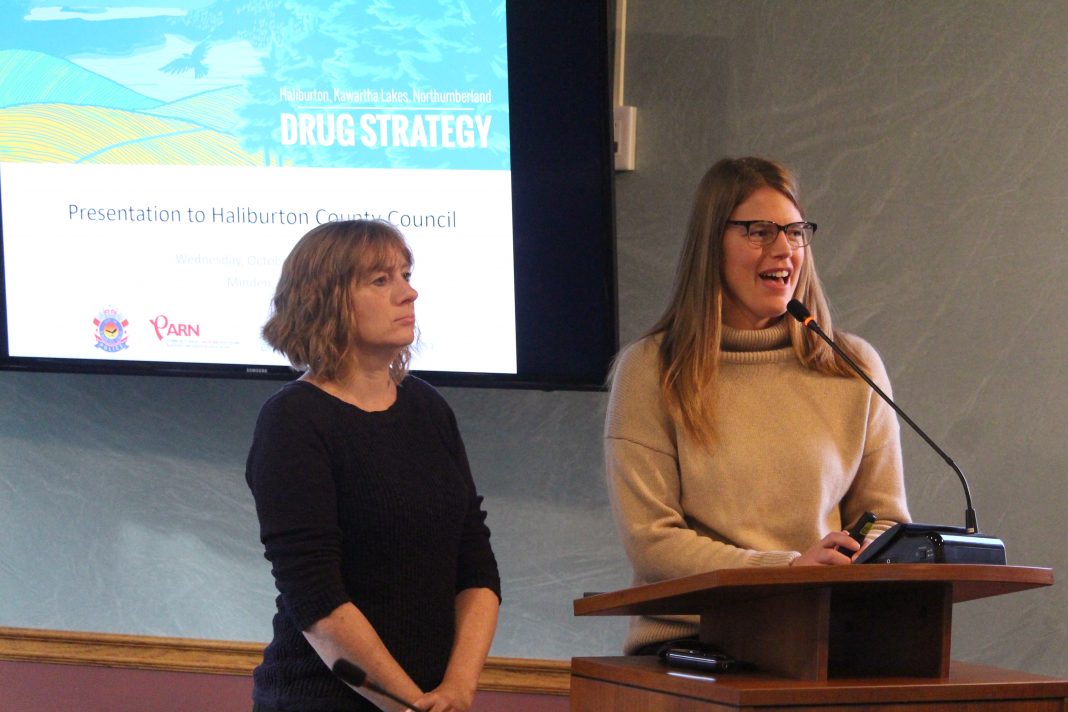The Haliburton, Kawartha Lakes, Northumberland (HKLN) Drug Strategy is planning to maintain itself despite the end of its funding term.
The drug strategy has run for the past three years addressing drug abuse in the tri-county area by coordinating different services, with partners including the Haliburton, Kawartha Lakes, Pine Ridge District Health Unit (HKPR), OPP, the Four Counties Addictions Services Team and PARN – Your Aids Resource Network. The strategy operated using a funding grant from the Ontario Trillium Foundation but that expired at the end of 2019.
But coordinator Megan Deyman said despite her position ending, those partners are continuing to meet and further work on the strategy. She said it remains important and they hope to secure more funding through grant applications and municipal partnerships.
“The partners are committed to continuing and building on the work of the last three years,” strategy and PARN communications worker Dylan DeMarsh said.
But Deyman said having full-time staff working on it is critical given the limited time of other health organizations.
“The full capacity that organizations are at currently, substance use and core response sometimes get pushed off people’s desks,” Deyman said. “It should be a priority and they identify it needing to be a priority but they don’t always have the capacity to address it.”
She said the collaborative efforts of drug strategy members have helped with stigma reduction in local communities over the past several years.
“Haliburton, certainly, there is more of an openness and an increased awareness for substance use issues,” Deyman said. “You can see better, more understanding of the factors contributing to the rise of substances.”
Opioids have remained prevalent in the area. According to Public Health Ontario, there were 119 emergency department visits across the HKPR district related to opioids in the first half of 2019 – greater than the 67 in the first half of 2018. There were also 30 opioid-related deaths in 2018, compared to 10 in 2017.
“We are seeing an increase,” Deyman said. “Although this is a complex issue, it is also an immediate need to address.”
She said it is important that drug strategy work is tailored to the individual communities it serves.
“We need to be able to address it in a way that’s relevant and appropriate to the various uniqueness of counties and communities,” she said.
Bringing in a more diverse set of service options to help people treat and recover from substance abuse is a next step for the area, such as acupuncture, she said.
“We can look at maybe more nontraditional forms of support and recovery,” Deyman said. “There is an identified priority for beginning these kinds of supports and services in Haliburton. It just takes time to build. It’s on the horizon.”





